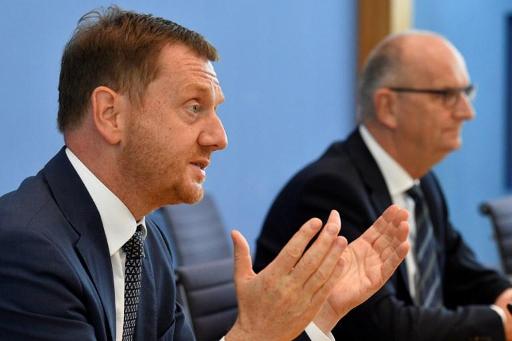Germany is already in a second wave of the coronavirus (Covid-19) pandemic, said Minister-President of Saxony Michael Kretschmer according to Rheinische Post on Saturday.
"We have new clusters of infections each day,” Kretschmer said.
On Friday, the Robert Koch Institute, which is in charge of the fight against infectious diseases, had pointed to a sharp daily increase in new infections, which at a certain point last week rose to more than 800 a day. “A more marked exacerbation needs to be avoided,” a spokesman for the institute said.
Related News
- Second coronavirus peak in Belgium likely higher than the first, model shows
- Smaller social bubbles 'necessary' to prevent second coronavirus wave
The reproduction rate of the virus - how many people one person with coronavirus infects on average - was estimated on Friday at 1.08, up from 0.93 the day before. Based on the figures for seven days, which are less subject to daily fluctuations, the rate has been set by the Robert Koch Institute at 1.16.
Kretschmer, however, remained positive, saying efforts by the regional government in tandem with the health authorities to stem the second wave of coronavirus were "working well.” Germany is deriving real benefit from its federal system, according to Kretschmer, since it can operate more precisely at the local level thanks to the competencies placed in the hands of its 16 federated states.
According to the Robert Koch Institute, two states account for the bulk of the new infections : North Rhine-Westphalia, across the border from Belgium, and Baden-Wurtemburg, which borders on France and Switzerland.
The clusters have been linked, among other things, to celebrations, entertainment activities and workplaces.
Since the start of the coronavirus pandemic, at least 204,964 people have contracted the virus in Germany, and 9,118 people have died from coronavirus, according to the Robert Koch Institute.
The Brussels Times

